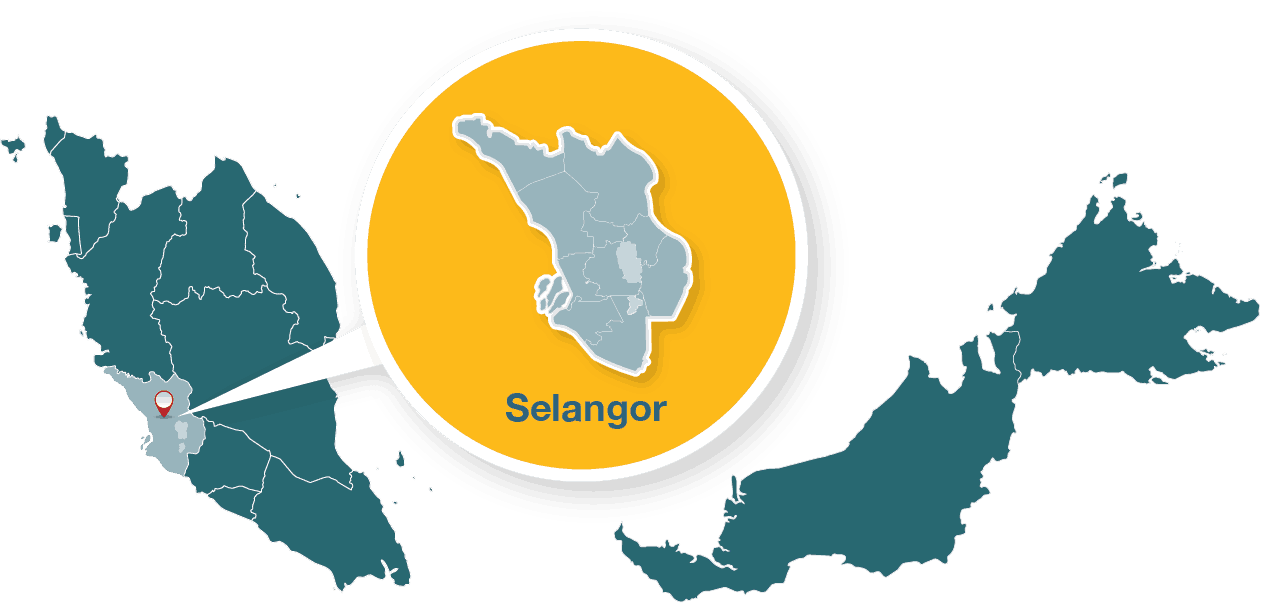THE upcoming state polls on Aug 12 should draw the attention of voters to the disproportionate number of constituencies in the country.
Selangor has the biggest parliamentary and state constituency variations and lopsidedness that mock the international democratic electoral principle that votes should have equal value as far as possible and not be unduly unfair and inequitable.
This concept is also stated in the Malaysian constitution but over the decades since Malaysia’s Independence Day due to one-party rule, this condition has not been followed and various excuses and pretexts have been given for this.
In Selangor which has the largest population of about 7 million people and almost 5 million voters, this gerrymandering process has led to a lot of discrepancies in terms of allocations and service by the elected representatives. The greatest discrepancy occurs in the Bangi and Damansara parliamentary seats which have 303,000 and 240,000 voters respectively.
Some state constituencies have more than 110,000 voters, which is equivalent to the number of voters in some parliamentary seats. This anomaly is further accentuated by the lack of local council polls to elect local government representatives.
For years, electoral delineations have been decided under the guise of ensuring a balance of urban and rural electoral representation. Selangor cannot be equated with Sarawak, Sabah or Kelantan.
Selangor is mostly urbanised or suburban, and there are no completely rural areas that lack amenities, infrastructure, industries, employment opportunities, etc.
Previous governments had focused much on rural development in Selangor and today urban poverty is the main issue, not its rural counterpart. Selangor was declared a developed state in 2005 and is the most multi-racial, and as such, electoral boundaries should reflect this.
Giving more weightage to rural areas by way of allocations and development at the expense of urban ones has led to higher urban poverty in the state, as can be witnessed in the PPR apartments, low-cost housing and squatter settlements.
There is a need for a re-alignment of electoral boundaries throughout the country to reduce variations and gerrymandering, and it is all the more important in Selangor.
Selangor should lead the way to fairer and more equitable electoral boundaries.
The present 56 assemblymen can be increased to 70 to 80, and the number of MPs can be hiked to 30 from the present 22 in line with the population increase. The number of executive councillors (Excos) should also be increased, as some Excos are holding more portfolios than should be administratively effective and viable.
The assembly representatives and Excos should be paid a basic salary and various allowances in tandem with their duties.
This will reduce the burden of pensions for the government, as the higher cost involved is also one of the impediments to increasing the number of assemblymen.
More state representatives and smaller constituencies should lead to better service and rapport with the constituents, and town hall sessions at least once every six months should be imposed on the state reps.
Moreover, Selangor is undergoing rapid changes including those brought about by climate change and better discussions with the state representatives and various departments will be helpful to Selangor-ians.
Needless to say, Malaysia’s electoral boundary marking system has to undergo a major overhaul to make the parliamentary and state legislative assembly representational systems more equitable, fairer and democratic.
The third tier of democratic representation nationwide — the local government elections — is conspicuously absent and should be reintroduced.
The unique system in the federal territories especially in Kuala Lumpur (KL) should be rectified as KL folks have only MPs to look after their interests without the collateral support of the local councillors.
The Election Commission (EC) should look into the possibility of not decoupling state and parliamentary elections. This will lower costs and reduce political instability.
The present six-state elections have become a staid and unexciting affair, and voters lack enthusiasm even to attend campaigns and rallies. This could possibly lead to low voter turnout. For the 16th General Election, it will be better for both state and parliamentary elections to be held together. – Aug 5, 2023
V.Thomas is a Focus Malaysia viewer.
The views expressed are solely of the author and do not necessarily reflect those of Focus Malaysia.









